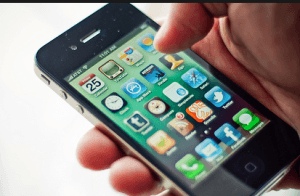Mobile money interoperability records over one million transactions in September
 Mobile money transactions across networks referred to as mobile money interoperability (MMI) recorded over one million transactions in September this year, the highest volume of transactions since it was introduced.
Mobile money transactions across networks referred to as mobile money interoperability (MMI) recorded over one million transactions in September this year, the highest volume of transactions since it was introduced.
This compared with about 312,000 transactions in September 2018, representing an increase of over 250 percent.
The data of transactions are contained in the Ghana Interbank Payment and Settlement Systems (GhIPSS) Third Quarter Industry Transaction report.
Mobile money interoperability was introduced in May last year and close to about 100,000 transactions were recorded in its first month.
The volume rose steadily and recorded a monthly average of 280,000 transaction last year.
This year begun with about 400,000 transactions in the month of January rising to about 750,000 transactions in July and the over million recorded last month.
Total volume of the cross-network transactions from January to September this year stood at 5.1 million.
Commenting on the report, the Chief Executive of GhIPSS, Mr Archie Hesse said the volume of transactions could go up further.
He said GhIPSS had been working with telcos to increase awareness about the existence of mobile money interoperability.
He said the public education would continue to further increase the volume of transactions.
He said GhIPSS was in the process of introducing other initiatives to make payment with mobile money a lot easier and more convenient, adding that the new initiative should significantly drive the mobile money transactions up by an even higher margin.
With the mobile money interoperability, customers, are now able to transfer funds from one mobile money wallet to another wallet across networks.
This eliminates the hitherto complexities and inconveniences associated with transfers across the various networks in the country, which was only possible through the token system.
The mobile money interoperability has also been seen as an important vehicle to deepen financial inclusion because it enables people who do not have bank accounts to be roped into the banking system, as any money kept on a mobile money wallet is actually held at a bank.
Various micro credit and investment products have also been introduced bringing banking to the unbanked.
In the wake of mobile money interoperability, a number of institutions including Electricity Company of Ghana, Ghana Water Company, pay television channels, some fuel stations and supermarkets now accept mobile money as one of their payment channels.
The ‘Pay Bill’ option on mobile phones leads customers to several service providers that can be paid through mobile money.
Source: GNA
